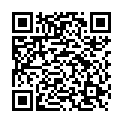|
|
|
| Module code: MFSTM-150 |
|
|
4V (4 hours per week) |
|
6 |
| Semester: 1 |
| Mandatory course: yes |
Language of instruction:
German |
Assessment:
Term paper with presentation (Can be repeated annually)
[updated 20.01.2020]
|
MFSTM-150 (P440-0017) Leisure, Sports, Tourism Management, Master, ASPO 01.04.2017
, semester 1, mandatory course
|
60 class hours (= 45 clock hours) over a 15-week period.
The total student study time is 180 hours (equivalent to 6 ECTS credits).
There are therefore 135 hours available for class preparation and follow-up work and exam preparation.
|
Recommended prerequisites (modules):
None.
|
Recommended as prerequisite for:
MFSTM-250 Seminar on Sustainable Economics in the Leisure, Sport and Tourism Sectors
MFSTM-350 Leisure, Sport and Tourism Management - Study Project
MFSTM-410 Seminar on Leisure, Sport and Tourism Management
MFSTM-W-11 Edutainment
MFSTM-W-111 Sports Management
MFSTM-W-141 Health and Wellness Tourism
MFSTM-W-21 Entrepreneurship
MFSTM-W-31 Recreation and Adventure Management
MFSTM-W-91 Quality Management
MFSTM-W71 Mobility Management
[updated 20.03.2025]
|
Module coordinator:
Prof. Dr. Achim Schröder |
Lecturer:
Dozierende des Studiengangs
[updated 21.12.2023]
|
Learning outcomes:
After successfully completing this module, students will be able to:
_ demonstrate the importance of empirical social research in the fields of leisure, sports and tourism management.
_ explain and apply theoretical scientific principles.
_ transfer problems from the fields of leisure, sports and tourism management (resp. cultural management), alone or in a team, into a research design and then implement it using the methods, techniques and methods they have learned.
_ be able to prepare and analyze data independently, document key results and convey them to the group (as well as to external parties, if necessary) in a presentation.
[updated 20.01.2020]
|
Module content:
Lecture
_ Objectives and procedure of empirical social research (research process)
_ Scientific theoretical basics (definitions, hypotheses, theories and laws, explanation and naive falsification, empirical significance of theories)
_ Concept specification, operationalization and measurement (scales, quality criteria, indexing and scaling)
_ Research design and types of research
_ Non-random sampling
_ Data collection techniques (interviewing, observation, content analysis, non-reactive measurement techniques)
_ Data preparation and analysis
_ Interpretation and publication
Seminar on focus area:
_Students will get the chance to apply the content conveyed in the lecture to a task or problem from the field of leisure, sports and tourism management (resp. cultural management).
[updated 20.01.2020]
|
Teaching methods/Media:
_ Lecture and seminar
_ Case studies
_ Role playing
_ Group and project work (concept development and presentation)
_ Discussions with fellow students and third parties
_ Presentations and preparation of documentation/papers
Students will learn to develop and implement research concepts, as well as present their results based on independently conducted studies.
[updated 20.01.2020]
|
Recommended or required reading:
_ Atteslander, P., Methoden der empirischen Sozialforschung. Erich Schmidt Verlag, Berlin, latest edition
_ Fantapié Altobelli, Claudia: Marktforschung : Methoden, Anwendungen, Praxisbeispiele, UVK/Lucius, latest edition
_ Fantapié Altobelli, Claudia; Hoffmann, Sascha: Grundlagen der Marktforschung, UVK/Lucius, München, latest edition
_ Flick, U., Qualitative Sozialforschung: Eine Einführung, rororo, 2007
_ Koch, Jörg: Marktforschung. Grundlagen und praktische Anwendung, Oldenbourg, München, latest edition
_ Schnell/Hill/Esser: Methoden der empirischen Sozialforschung, Oldenbourg, München, latest edition
_ Seitz, Erwin; Meyer, Wolfgang: Tourismusmarktforschung, Vahlen, München, latest edition
_ Przyborski, A., Wohlrab-Sahr, M.: Qualitative Sozialforschung: Ein Arbeitsbuch, Oldenbourg, latest edition
[updated 20.01.2020]
|


